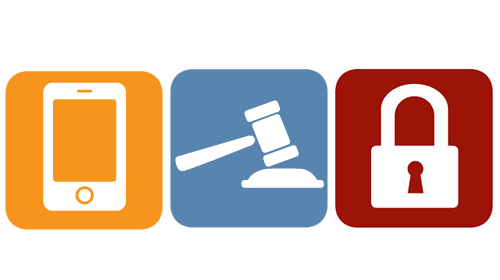Under the FISA Amendments Act, Your Calls and Emails Can’t Be "Targeted," But They Can Certainly Be Collected


In recent days, government officials have lined up to assuage Americans' fears about the government's extraordinary surveillance powers under the FISA Amendments Act (FAA) by assuring them that—as President Obama himself told Charlie Rose on Monday night—the statute "does not apply to any U.S. person." But while perhaps an argument can be made that the statute does not "apply" to U.S. persons directly, it still vacuums up their international communications on a massive scale. Indeed, that is exactly what it was designed to do.
The government's defenders have not denied that Americans' calls and emails are being swept up by NSA surveillance conducted under the authority of the FAA; instead, they've tried to shift attention to the law's limitations on whose communications can be "targeted." But as Amy Davidson of the New Yorker explained yesterday, "targeting" is "a word that has done a good deal of un-obvious work in this story." Building off of statements like the one issued by Director of National Intelligence James Clapper—who said that the NSA can only target "non-U.S. persons located outside the United States"—officials have sought to give the demonstrably false impression that the government needs a warrant to read Americans' emails or listen to their phone calls under the FAA.
For example, one legislator flatly stated to ABC News that the NSA "does not listen to Americans' phone calls and it is not reading Americans' emails. None of these programs allow that." Another told BuzzFeed that the "NSA cannot listen to the content of Americans' phone calls without a specific warrant." When making the same claim on Charlie Rose, the president even invoked Hollywood capers: When it comes to Americans' private communications, President Obama said, it's the "same way it's always been," just like "when we were growing up and watching movies, you know, you wanted to go set up a wiretap, you've got to go to a judge, show probable cause..."
But all of these defenses ignore a simple, basic point: Communication is a two-way street. And if an American is communicating (however innocently) with a foreign "target" under the FAA, the law allows the government to collect, inspect, and keep the content of that communication. As Glenn Greenwald clarified on Tuesday, under the FAA, "no individualized warrant is needed to listen in on the calls or read the emails of Americans when they communicate with a foreign national whom the NSA has targeted for surveillance."
And what it does it take for the NSA to "target" a foreigner for surveillance? Not much. The target need not be a suspected terrorist or even suspected of any kind of wrongdoing. The FAA allows the government to target any foreigner when it wants to collect "foreign intelligence," which includes information about "foreign affairs." In other words, the statute allows the government to sweep up essentially every foreigner's communications, including those with Americans.
In fact, it's likely much worse than that. While official defenses have flatly stated that targets under the FAA must be both foreign and abroad, the statute only requires that the government "reasonably believe" those things to be true. And The Washington Post's report on PRISM—one government content-surveillance program authorized by the FAA—indicates that the government's "reasonable belief" need only be made to "51 percent confidence." (As The Daily Show's John Oliver put it, the rigor of that constraint amounts to the surveillance equivalent of "flipping a coin, plus one percent.") The Post also reported that the government not only collects the communications of a foreign target, but of "contacts two ‘hops' out from their target, which increases ‘incidental collection'" of Americans' communications "exponentially."
The government's choice of words in defense of its surveillance powers is misleading, but it also betrays a short institutional memory. In a brief filed with the Supreme Court that sought to dismiss the ACLU's lawsuit challenging the FAA, Amnesty v. Clapper, the government acknowledged (in a footnote) that the law "confers authority for collecting the contents of wire communications to or from a person in the United States." As the ACLU's Jameel Jaffer argued in front of the Supreme Court justices in that case, "the whole point of this statute was to allow the government to collect Americans' international communications." Indeed, when testifying before the Senate Judiciary Committee in support of the FAA's predecessor statute in 2006, CIA Director Michael Hayden said that the "communications that are most important" to the government were "those entering or leaving the United States."
The Supreme Court ultimately concluded in Amnesty that the plaintiffs could not demonstrate beyond a "speculative chain of possibilities" that the government was collecting their communications under the FAA.
But there is nothing speculative about whether the government can do so. It can collect Americans' communications with foreigners without a warrant. Officials insinuating otherwise in the past several days are not telling Americans the whole truth.
Click here for more ACLU updates and analysis on the NSA surveillance programs.
Learn more about government surveillance and other civil liberties issues: Sign up for breaking news alerts, follow us on Twitter, and like us on Facebook.



